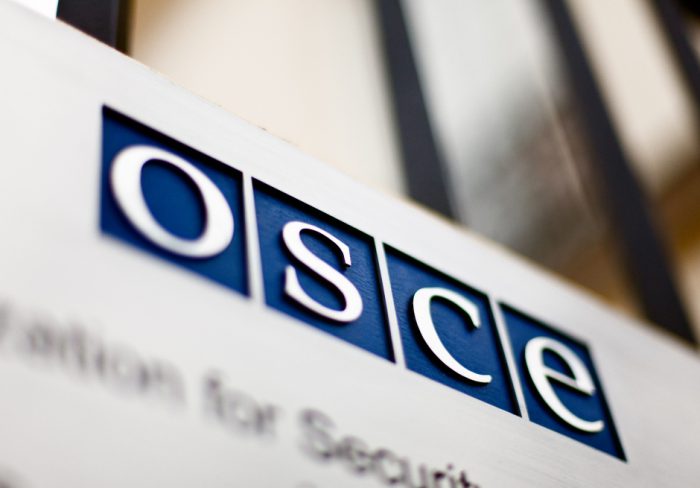The Turkish Foreign Ministry on Friday criticized an interim report on upcoming elections issued the same day by the OSCE Office for Democratic Institutions and Human Rights Election Observation Mission (ODIHR EOM).
“[It] is seen that the interim report includes certain comments, even of a political nature, that do not coincide with reality,” said a written ministry statement posted online.
Underlining cooperation based on complete transparency with the OSCE mission, the statement continued: “It is a universal and fundamental principle that election observation missions work in an unbiased and objective manner. Therefore it is our expectation that all observer missions in our country carry out their functions accordingly.”
In an 11-page interim report of observations from May 24 to June 13, the OSCE Election Observation Mission expressed concerns about various dimensions of the elections, from the relocation of polling stations to campaigns and the media as well as restrictions on the freedoms of assembly, association and expression and the ongoing pretrial detention of one of the presidential candidates.
“Upon requests from governors based on security considerations, according to the Supreme Board of Elections (SBE), a number of polling stations have been relocated and merged affecting some 144,000 voters in 16 provinces. Some ODIHR EOM interlocutors have expressed concerns that these measures are aimed at lowering the turnout of voters in areas that are considered to be strongholds of the HDP [pro-Kurdish Peoples’ Democratic Party]. Governors claim that the measure will better ensure the secrecy of the vote for voters in insecure areas; however, several ODIHR EOM interlocutors noted that the affected communities opposed these measures. Although relocation of polling stations had to be completed by 24 May, the SBE considered requests after the legal deadline and allowed district election boards to merge polling stations. …
“Also, the framework gives the president favorable campaign conditions. The president is exempted from these campaign rules as they have not been updated since introduction of the direct presidential election system and repeal of the non-partisan nature of the office of the president. Insult of the president is criminalized and the constitution, criminal liability of the president is significantly limited, including in his personal capacity. …
“As the campaign coincides with the month of Ramadan, contestants use traditional iftar dinners and late evening hours to campaign. Despite a prohibition by law, some candidates campaigned abroad.
“The tone of the presidential campaign has been confrontational reflecting the general polarization. While all candidates have used harsh and denigrating rhetoric against each other, the incumbent president has repeatedly referred to other candidates and parties as supporters of terrorism. On 28 May, the incumbent president launched criminal and civil suits, including for insult, against the CHP [Republican People’s Party] candidate for statements he made in a campaign speech. On 9 June, [the] CHP candidate filed a lawsuit against the incumbent president demanding compensation for expressions containing slander and grave insult. …
“In five provinces, bans on assembly, public gatherings and press statements have been imposed. Opposition parties informed the ODIHR EOM that they have been obstructed in campaigning. The HDP informed the ODIHR EOM about a pervasive atmosphere of fear, attacks on their party and campaign offices and stands, detentions of party activists, obstruction of campaign activities and being subject to selective application of campaign rules. …
“The media landscape is dominated by outlets whose owners are considered affiliated with the government or depend on public contracts.”
